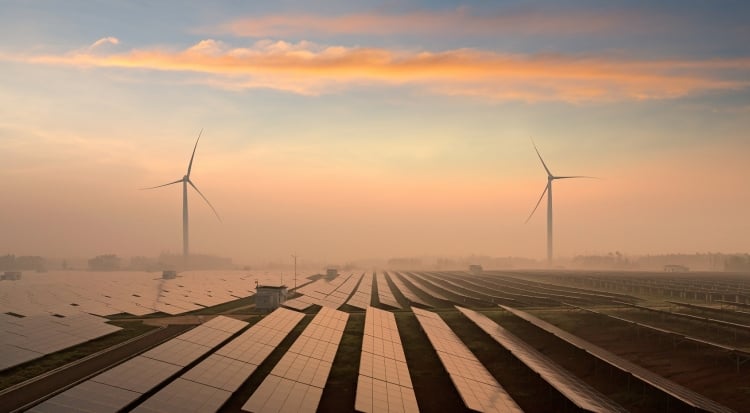
Image: Getty
The Solar Trade Association (STA) is calling on the next government to “hit the ground running” as it stresses the need for the “urgent delivery” of three key policies.
With the UK in the midst of a general election, the STA has outlined three policy recommendations for the next government that would “unlock the true potential” of UK solar.
Firstly, regular Contracts for Difference (CfD) auctions should be held, with solar allowed to participate, a request regularly made by a range of industry organisations, including the Committee on Climate Change and Energy UK.
The auctions should be technology neutral and utilise a floor price mechanism, under which when wholesale prices fall below the floor price, the generator receives a top-up payment. When the wholesale prices rise above the floor again, the generator doesn’t retain the upside until the value of CfD top-ups have been reimbursed.
Investors would then benefit from lower average cost of capital whilst also capturing upside in return for taking on merchant risk, the STA said.
The second recommendation is to amend Ofgem’s remit to align with a 2050 net zero. The regulator must take a “holistic, long-term view” of the requirements of the energy sector to support the decarbonisation and flexibility required for net zero, the STA said.
Lastly, a new strategy for rooftop solar should be adopted, broken down into five suggestions:
- A minimum floor price for solar should be introduced as part of the Smart Export Guarantee (SEG), set to start on 1 January 2020. Suppliers are able to set their own export rates under the SEG, so long as it is above 0p/kWh.
- The VAT hike for solar plus storage, which came into effect on 1 October 2019, should be scrapped. This is another contentious issue for the solar industry, with the policy seeing VAT rise on certain installations from 5% to 20%, a move that has been heavily criticised since it was first announced.
- Zero interest loans for solar and storage should be introduced to allow those without the immediate funds to contribute to decarbonisation.
- Higher building standards should be introduced, with improved fabric efficiency and onsite low carbon technologies onsite, such as solar PV and thermal. This is a policy currently being explored by the Conservatives in the shape of its Future Homes Standard and bares a resemblence to a previous Labour policy, Zero Carbon Homes.
- Solar PV, battery storage and other clean energy technologies should be exempt from business rates, placing them on par with Gas CHP, which is currently exempt.
These policies would drive the levels of deployment needed to decarbonise the power sector by 2030, it said. Ramping up the uptake of solar throughout the next ten years must form an “essential” part of the next government’s package of net zero measures.
Chris Hewett, chief executive of the Solar Trade Association, said the next decade is going to be “absolutely key” in accelerating towards net zero.
“Whoever wins the election will need to hit the ground running by transforming welcome future targets into urgent, robust action for tackling the climate emergency.
“We are shining a spotlight on the practical policies that will drive the uptake of cost-effective, popular renewables at scale into the 2020s and beyond. We urge all parties to seize the initiative and work with industry to drive these forward.”

